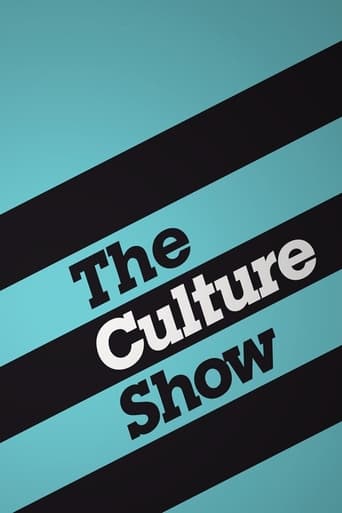
The Culture Show
Season 19
Episodes
1. Episode 1: Lynn Barber's Celebrity Masterclass
Lynn Barber has been interviewing famous people for more than three decades. Renowned for her audacious, brilliantly honest and often caustic profiles, Barber asks the questions no one else dares ask. The 'Demon Barber of Fleet Street' they call her. In this irreverent half-hour programme, Lynn Barber talks to Alan Yentob about her job interviewing and writing about celebrities. She recounts her combustible clashes with Rafa Nadal and Marianne Faithful, she explains why actors are so difficult to interview and why she relishes shouty men. 'I'm embarrassment proof,' she says, 'if somebody loses their temper and starts shouting at me I feel quite cosy with that'.
2. Episode 2: Sir Kenneth Clark: Portrait of a Civilised Man - A Culture Show Special
Sir Kenneth Clark was arguably the most influential figure in 20th-century British art. Born into a world of privilege, his achievements were staggering. He keeper of the King's Pictures, director of the National Gallery, founder of the Arts Council and independent television, and best remembered as the presenter of the most ambitious arts series ever made - Civilisation. A staunch defender of Reithian values, Clark was attacked for being an elitist 'posh man in tweeds'. But he held a passionate belief that art was for everyone and made it his mission, through television, to share his love of art with the masses. To coincide with Tate Britain's exhibition on Clark opening in May, this Culture Show special presents an intimate portrait of a contradictory and elusive character who transformed our cultural landscape.
3. Episode 3: Edward St Aubyn - At Last?
When Edward St Aubyn summoned the courage to write the fictionalized version of his unbearable childhood and describe the horrific abuse he suffered at the hands of cruel and neglectful aristocratic parents, he not only broke a taboo, but he also pulled off a rare act of literary alchemy. He turned the grim material of his life - rape, drug addiction and the ever-present pull of suicide - into a series of exquisitely crafted books (The Melrose novels) that critics rate amongst the finest achievements of contemporary British fiction. The surprise is that they are wickedly funny too. Through his alter ego Patrick Melrose he slays the monsters of his past with witty, elegant rage.
4. Episode 4: Ryan Gander - The Art of Everything
Miranda Sawyer enters the wild imagination of celebrated British conceptual artist Ryan Gander. A cultural magpie renowned for his playful, cryptic and complex creations, Gander is one of the world's most exciting young talents whose creations can sell for up to £500,000. It is a big summer for this Chester-born innovator with works appearing at the Royal Academy and Hayward Gallery, exhibitions all over the world, as well as a massive solo show opening in Manchester in July.
5. Episode 5: Deller and Kane - Folk Devils
or centuries, folk art has been ignored by the art establishment, but in June 2014 the first national exhibition to look back at the tradition of folk art in this country opens at Tate Britain. Artists Jeremy Deller and Alan Kane get a preview of the show and give their own take on what folk art is. They go on an illuminating tour of British folk art. From Blackpool promenade to customised motorbikes, from shop signs to street parades, they show that, if you look closely, we live in a folk art culture and that folk art is all around us.
6. Episode 6: Tents - The Beginning of Architecture
All architecture begins with the tent. Tents are what humans lived in before we put down roots and began our love affair with bricks and mortar. And no-one is more obsessed with solid, heavy, permanent buildings than the British. To us, the tent is something flimsy and temporary that we will only endure bedding down in on rare occasions. But has civilisation - and architects in particular - unfairly overlooked the brilliant, efficient design of the tent? In an overcrowded world faced with a housing crisis and dwindling natural resources, could the tent be the answer? Tom Dyckhoff thinks it could well be.
7. Episode 7: Girls Will Be Girls
At the height of the punk explosion almost 40 years ago, a handful of women completely redefined what a woman in music could do. Through sheer talent and lack of fear, they pushed themselves on to a male-dominated music scene and became part of a movement that radically changed the cultural landscape. Along with Siouxsie Sioux, Poly Styrene and Chrissie Hynde, the Slits were among punk's most important figures and their guitarist Viv Albertine’s memoir, Clothes, Clothes, Clothes, Music, Music, Music, Boys, Boys, Boys, chronicles life as part of this revolutionary vanguard. Miranda Sawyer meets up with Viv Albertine and some of the other key female figures of the era, including Chrissie Hynde, The Raincoats, and punk anti-heroine Jordan, to look at how they inspired a generation of young women with the notion that anyone could do anything if they wanted to. And she explores whether the punk spirit still survives today.
8. Episode 8: Hilary Mantel - Case Histories
Hilary Mantel is one of our most assured and successful novelists. She writes blackly comic novels set in the present and confronts our Tudor past in her Thomas Cromwell novels, Wolf Hall and Bring Up the Bodies. She reimagines famous figures from our history, or imagines for herself the life of a psychic medium in the suburbs of Surrey and Berkshire. In fact, everything she writes is historical fiction, because everyone she writes about must deal with their own past. James Runcie meets a writer who has conjured the ghosts of Henry VIII and Lady Diana, and whose latest collection of short stories contemplates the possibility that Margaret Thatcher was assassinated in 1983.
